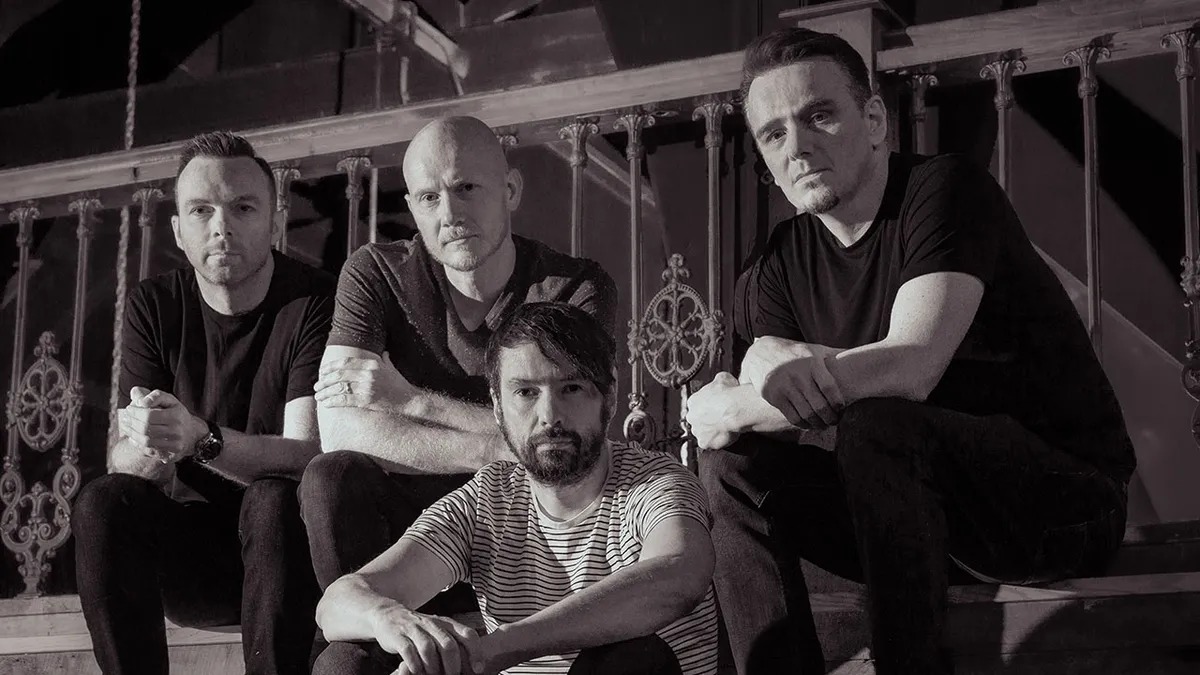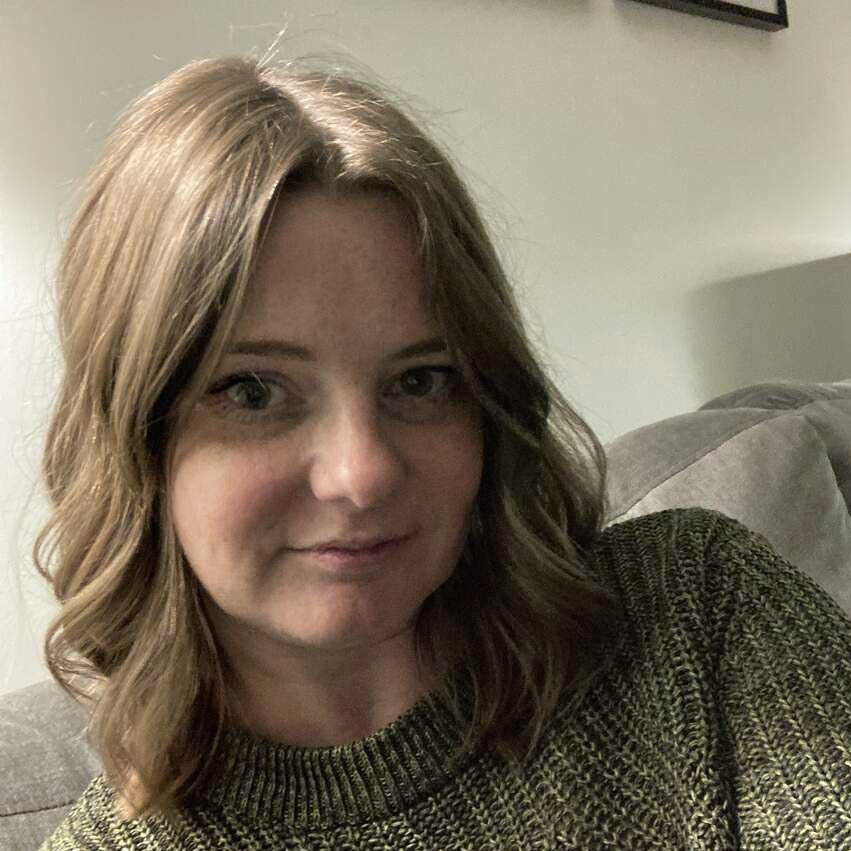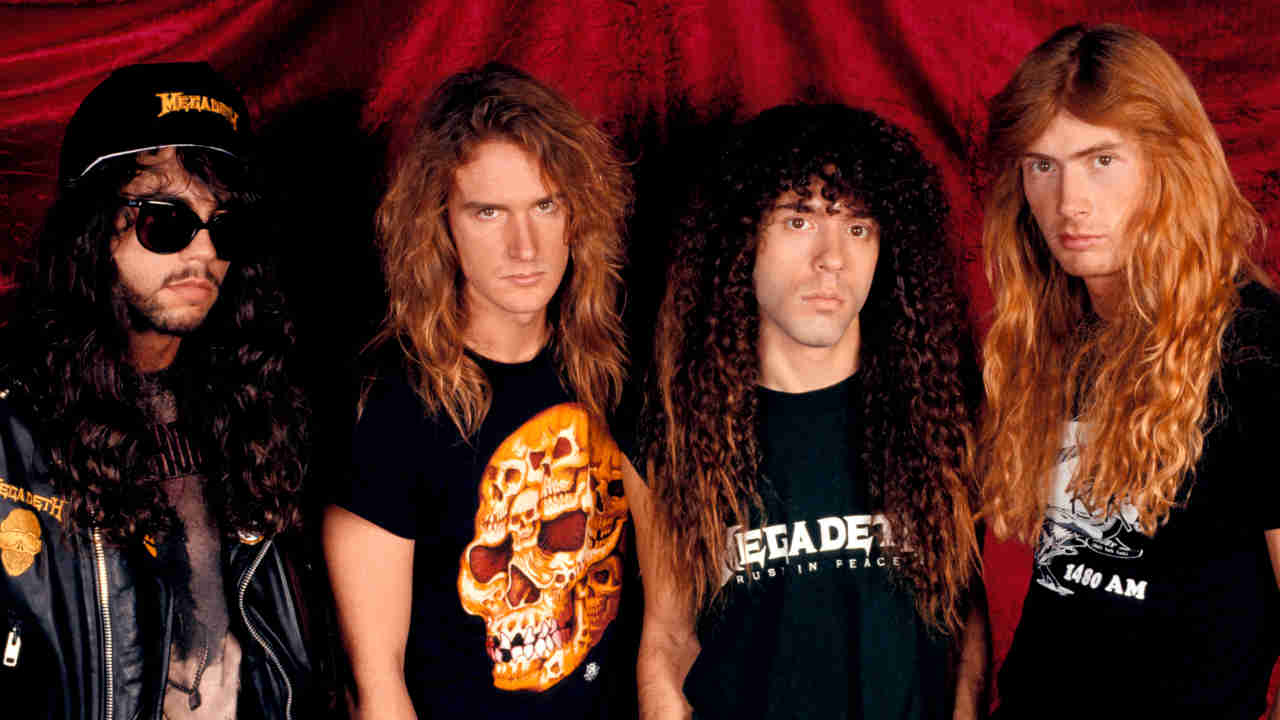"If you just stay in your comfort zone all the time, you keep writing the same type of songs over and over again": The Pineapple Thief are rejuvenated, regenerated and on a roll
The PineappleThief almost called it quits back in 2016, but with founder Bruce Soord bringing in creative partner Gavin Harrison it's like a whole new band

Select the newsletters you’d like to receive. Then, add your email to sign up.
You are now subscribed
Your newsletter sign-up was successful
Want to add more newsletters?

Every Friday
Louder
Louder’s weekly newsletter is jam-packed with the team’s personal highlights from the last seven days, including features, breaking news, reviews and tons of juicy exclusives from the world of alternative music.

Every Friday
Classic Rock
The Classic Rock newsletter is an essential read for the discerning rock fan. Every week we bring you the news, reviews and the very best features and interviews from our extensive archive. Written by rock fans for rock fans.

Every Friday
Metal Hammer
For the last four decades Metal Hammer has been the world’s greatest metal magazine. Created by metalheads for metalheads, ‘Hammer takes you behind the scenes, closer to the action, and nearer to the bands that you love the most.

Every Friday
Prog
The Prog newsletter brings you the very best of Prog Magazine and our website, every Friday. We'll deliver you the very latest news from the Prog universe, informative features and archive material from Prog’s impressive vault.
The vast majority of people would do anything for an easy life. Bruce Soord, frontman and founder of progressive rock powerhouse The Pineapple Thief, is not one of them. The band recently completed their fourteenth studio album, It Leads To This, a wonderfully complex, thought-provoking and atmospheric work. And while drummer Gavin Harrison’s response to finishing it is to be simply “relieved”, it’s dawning on Soord that he now needs to learn how to play these intricate songs live for The Pineapple Thief’s upcoming shows.
“I’m normally the least rehearsed one and I get into a lot of trouble,” he says. “Especially with the guitars, because I tune them into weird tunings, and I play them once. Then a year or two years later I’m like: ‘How did I do that?’ Then it’s like learning it from scratch again.”
It’s little wonder that it’s such a big task. It Leads To This had a long gestation period, the lockdown of 2020 providing the luxury of time in which to write, with no other work commitments. By the time life started to resemble normality again, Soord and Harrison – who, because they live so far apart (Soord in Somerset, Harrison in London) usually work alone in their home studios, and send song sketches to each other remotely – decided to get together in person to bounce ideas off one another in real time.
“It’s quite easy to record your guitars and vocals in your own little room,” adds Soord. “So you end up doing quite a lot remotely. But this was really back to old school, sat in the same room. It definitely was very different. Some of the best songs came out from those sessions. Travelling all the way to Gav’s house, and then knowing that we had four or five days, you kind of felt like you had to make it work. It really focused the mind.”
“It was a very intense, very productive way of writing,” adds Harrison. “When you write with someone, you get pushed into doing things that are outside of your comfort zone. If you just stay in your comfort zone all the time, you keep writing the same type of songs over and over again. So it’s great to have a writing partner that will push you into somewhere you wouldn’t normally go. I think with any artist, you love it when it doesn’t sound like typically you. I love it. The songs on this record are quite new for us, they were pushed into a different corner than the things that we explored in the previous two albums. This is a different record for us.”
It’s certainly the heaviest TPT have ever gone musically. It’s also, thematically, the result of some deep thought on Soord’s part. Influenced by literature, history, current events and more, he’s taken big themes and big ideas and turned them inward, relating them to everyday life.
“I think the title really sums it up, that it leads to this,” says Soord. “And it’s quite open-ended. I think the last couple of Pineapple Thief records have all been fairly bleak in their outlook. It started in 2016, when we had the Brexit vote, and then we had the polarisation of politics and distortion of truth and misinformation. I always thought, well, surely it’s gonna get better soon, the world is going to sort itself out.
Sign up below to get the latest from Classic Rock, plus exclusive special offers, direct to your inbox!
"Then you can see it just getting more and more crazy. But even though it sounds really bleak, it’s not. There’s always a light, because fundamentally I’m an optimist; I think that ninety-nine per cent of humankind are good people, it’s just the one per cent of loudmouths that ruin it for everybody. Where we’ve got to now, the polarisation, this whole post-MeTo thing, climate change, you kind of feel we’re all part of that problem, and does it really have to lead to this?”
One immediate standout on the record is Rubicon, crammed with mad, militaristic rhythms conjured by Harrison that stretched Soord to match them on the guitar. “I was reading about Roman history,” says Soord, “and I thought it’s so relevant to today. You know, the selfish man that went and just crossed the Rubicon and ruined the Roman Republic, all that kind of stuff. I look at what’s happening now in the world, and it just felt really relevant.”

Strictly speaking, It Leads To This is The Pineapple Thief’s fourteenth album, but Soord sees it as their fourth. Before Harrison joined in 2016, the band had been a hair’s breadth from calling it a day. It seemed that their well of ideas had run dry, and there was a risk of repeating themselves. Better to bow out with a flawless record than risk sullying it.
But, like a regeneration in Doctor Who, Harrison popped up at just the right moment, and rebooted the band (currently completed by bassist Jon Sykes and keyboard player Steve Kitch) in the process, bringing in fresh ideas and giving them the kick they needed to come back from the cliff edge. The spark was back.
“It was funny, because we didn’t have a drummer when we were making Your Wilderness [2016],” says Soord. “And I said to Jon [Sykes]: ‘This is the last Pineapple Thief record. We’ve had a good run, let’s just do one more record.’ Then we contracted Gavin to play drums on it, and he obviously connected with it, and that was it. It brought us back from the brink of disintegrating. And all of a sudden, when Your Wilderness came out we had a big surge of popularity, and we were able to tour and play to big crowds and things like that. It was almost overnight, that’s what it felt like. So yeah, ‘a reboot’ is probably the way to describe it.”
“I think you recognise creative people, and the way they work and the way they think,” Harrison says of the immediate connection he made with the band. “You see something of yourself in them, in the way that you can manipulate an idea, grow a seed. You’re always looking for a new seed, the rest of it is kind of mental tech: you’ve got a new idea, how can we turn this very simple drum rhythm into Rubicon?
“We’re quite different characters, me and Bruce. Bruce is more chaotic, and I’m more organised. And that’s a good thing. You don’t want two people who are trying to do the same thing all the time. So we do very different things, and there’s a level of trust. You send off an idea, and I’ve got very high expectations that Bruce is going to do something that I like. Ninety-nine per cent of the time, he does, and if there’s something I don’t like I can normally identify what it is. I think you recognise people that have got a similar creative thought process.”
Not only are the two men very different characters, they also come from vastly different musical backgrounds. Soord founded TPT in 1999, and has focused his creative energy on the band and his solo work ever since. Harrison is prog-rock royalty, having begun his career in 1979 as a session musician, working with everyone from Iggy Pop to Level 42, then spent time in King Crimson and TPT.
He grew up immersed in music, thanks to his jazz-musician father, a professional trumpet player. Not only would he spend his formative years listening to his dad’s records (although he also fell in love with New Boots And Panties!! by Ian Dury, an album he discovered for himself), he was also able to study his craft from a vantage point few would have the privilege of.
“Sometimes he would play in a pub with some friends, and they would have me sit in on drums,” Harrison says of his dad. “He would take me to sessions, and to the nightclub that he worked at, which was called the Talk Of The Town – it’s the Hippodrome now. From the late fifties until 1982 it was this Las Vegas-style nightclub, where they had a cabaret act on for a month: Diana Ross, Stevie Wonder, Mel Tormé, Judy Garland.
"And some of these artists used to bring their own musicians. Like Stevie Wonder brought his own drummer and bass player, or there was a jazz singer called Pearl Bailey, and she was married to a very famous drummer called Louis Bellson. So my dad would take me to the rehearsal – and I’d be like twelve years old – and I would sit and watch these people play. I’d literally sit next to the drummer, or stand in the wings and watch these musicians work. They would quite often get me on their drums or give me a pair of drum sticks. It was an incredible childhood of having an education like that, from a proper musician father.”
Soord comes from a more pedestrian starting point, one that will be familiar to millions.
“Mine’s almost like the opposite to Gavin,” he says. “My youth was musically a very barren landscape, and I only really got into music quite late when I was at school, because all my mates were playing instruments. So I bought a guitar, and I remember my dad saying: ‘Why have you wasted your money on that guitar?’ But actually that just made me go: ‘No, I’m going to show you, I’m gonna learn how to play it.’ So I did.”
That sense of determination has held firm throughout the existence of The Pineapple Thief, both MkI and MkII. You never quite know what to expect from one of their new records, apart from the fact that it will surprise you, and will have challenged the band to stretch themselves to the limit. Having stared their own demise in the face before, there’s a keen awareness that coasting can sound the death knell, and exploring brand new musical routes is the only way to keep the thing on the road.
“There’s no point in just keeping making the same record,” says Harrison. “And I think you’ll get a diminishing fan base of people who are really expecting that, and they love that. With every new record, some people love it, some people hate it. It’s just a matter of life, isn’t it? And you make new fans and you lose some old fans. But hopefully you gain more new fans as you go along. In this genre, people expect you to do something new each time.”
It Leads To This is out now via Kscope.
Emma has been writing about music for 25 years, and is a regular contributor to Classic Rock, Metal Hammer, Prog and Louder. During that time her words have also appeared in publications including Kerrang!, Melody Maker, Select, The Blues Magazine and many more. She is also a professional pedant and grammar nerd and has worked as a copy editor on everything from film titles through to high-end property magazines. In her spare time, when not at gigs, you’ll find her at her local stables hanging out with a bunch of extremely characterful horses.



